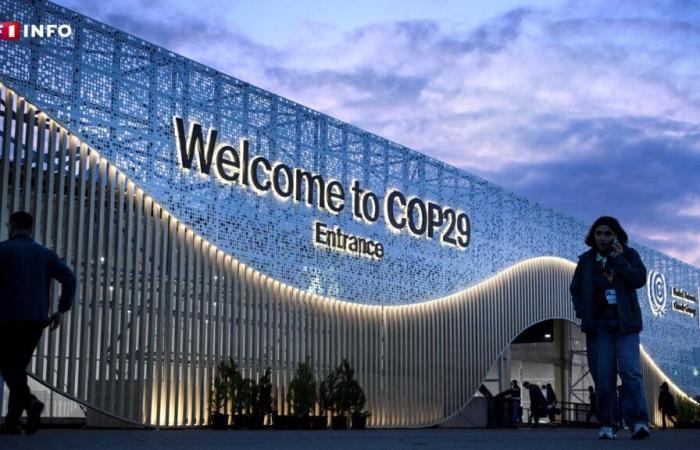Countries around the world adopted new UN rules on Monday for the controversial carbon credit market.
This agreement comes on the first day of the COP29 on climate which is being held in Azerbaijan.
This is a key step in helping countries meet their climate obligations.
First deal for the first day. It's a small victory for Azerbaijan, the disputed host of COP29. This Monday, November 11, the opening day of the UN climate summit, countries around the world adopted new United Nations rules for the contested carbon credit market. One step “extremely important”, Erika Lennon, an expert on the subject at the Center for International Environmental Law, immediately congratulated AFP.
This will “open the way” to a more established carbon market, intended to exchange quality carbon credits with standards supported by the UN, she underlines while being critical, like several NGOs, of the method deemed not very transparent by which the texts were pushed to the COP. Oil Change International, for example, criticized a decision taken “without debate or public scrutiny.”
Create a reliable market
If this Monday's decision will make it possible to launch a mechanism awaited since the 2015 Paris agreement and its article 6, other texts will have to be negotiated to be able to create a reliable market around these carbon credits. He is not “it's not possible to claim victory”, thus put things into perspective, a European negotiator, regretting that the text approved at the COP leaves other long-standing aspects of the mechanism unresolved.
Carbon credits are generated by activities that reduce greenhouse gas emissions responsible for global warming, such as planting trees, protecting habitats or replacing polluting coal with solar or wind turbines. One credit is equivalent to one ton of carbon dioxide prevented from entering or removed from the atmosphere.
-
Read also
Climate: COP29 opens in Baku, but there is not only bad news for the planet
The criteria adopted in Baku govern the methodology for calculating the number of credits a given project can generate, and what happens if the stored carbon is lost, for example if the affected forest burns. The proposed standards mainly concern countries – especially wealthy polluters – that seek to offset their emissions by purchasing credits from nations that have reduced greenhouse gases beyond what they had promised. This will ultimately allow countries to use carbon credits purchased from others to reduce, on paper, their greenhouse gas emissions.
Until now, this market had developed alone, outside of all international rules, and was mainly used by companies wishing to “offset” their emissions and claim carbon neutrality. But several studies have shown the ineffectiveness of numerous projects, certified by lax private organizations, sometimes to the detriment of local populations.






